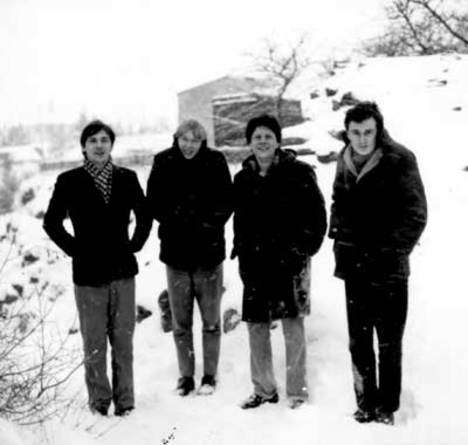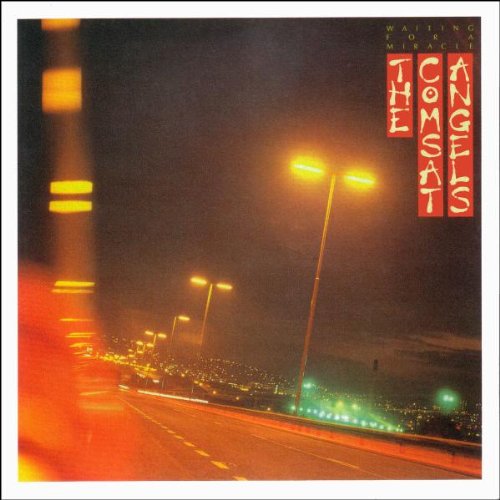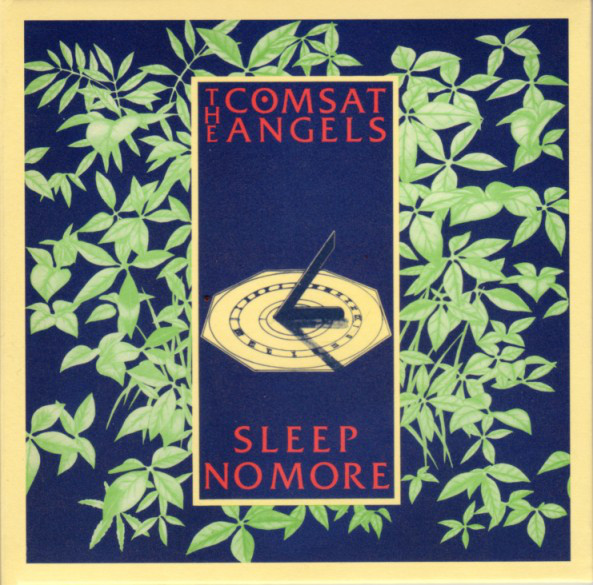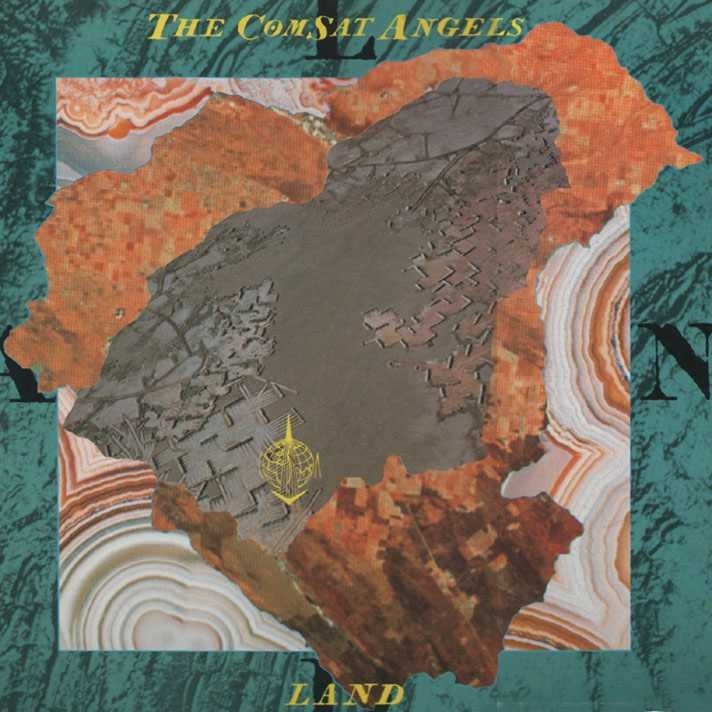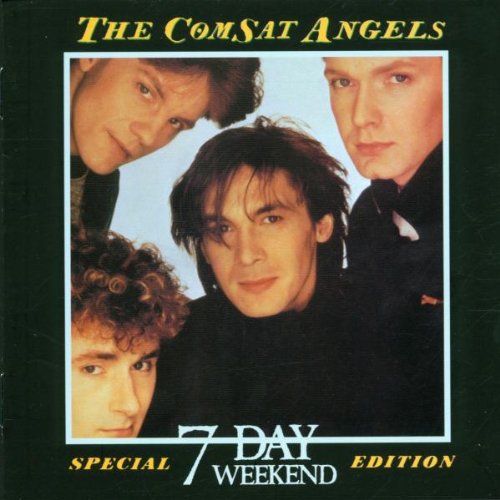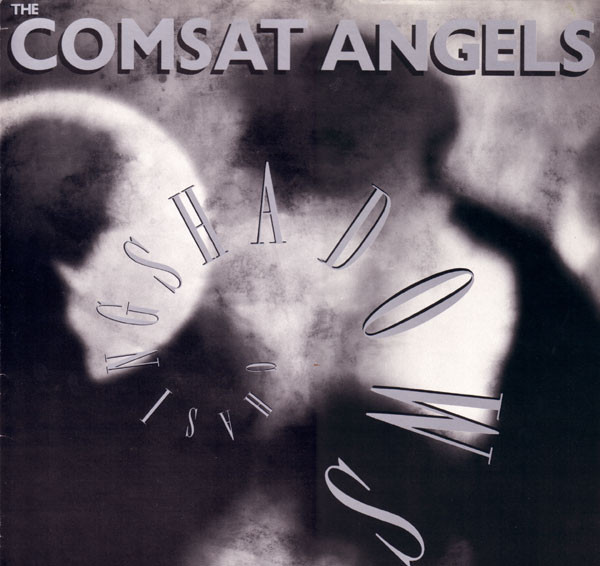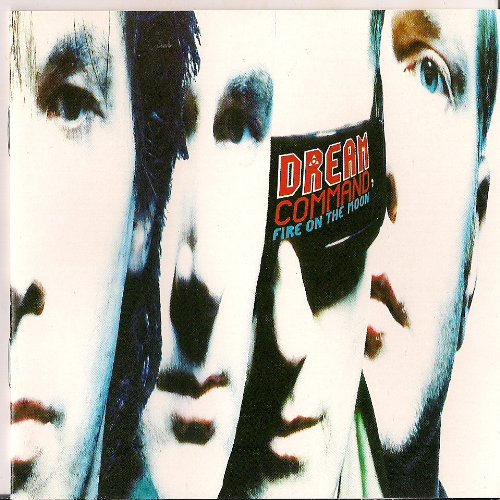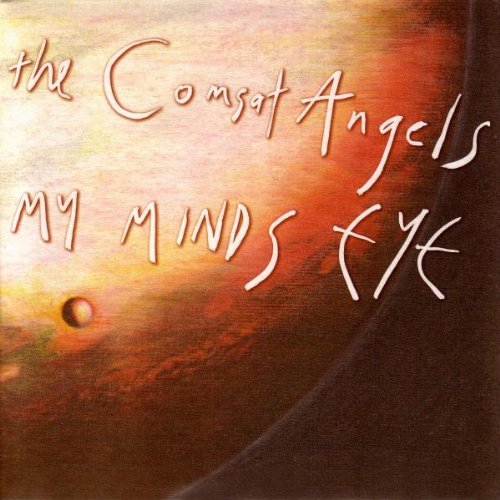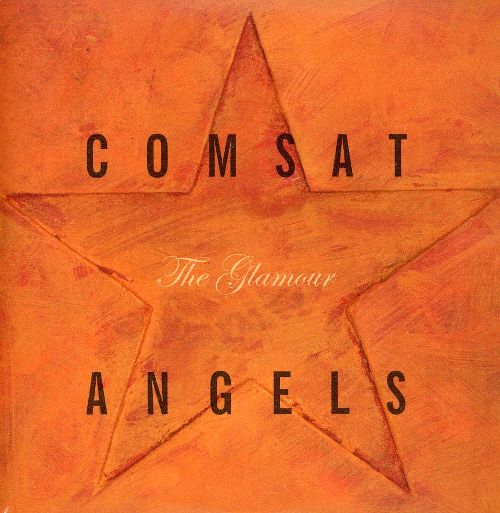Waiting for A Miracle: A Retrospective of The Comsat Angels
Click on the YouTube icon to listen to the playlist as you read along.
The Comsat Angels were an act that mostly flew under the radar in both their native UK and in North America, but still compiled a career of nine albums a solid following based on a moody few first albums and a couple of mid-1980s, dark, electro-dance tunes. They never attacked the charts in a big way but had critics’ appreciation and a core of loyal fans.
Their sound started as part of the moody, dark-pop, post-punk era, picking up on the interest generated by Joy Division and comfortably fitting in with bands like The Cure and Echo & The Bunnymen. As the ‘80s moved on they migrated into more of a synth-new wave sound and then into a lighter pop style that, as was the case for most music in the late ‘80s, lost its depth, intrigue, passion, and character. While many acts find success by providing a more accessible and pleasing sound (much to the chagrin of fans like me that prefer the darker, deeper vibes), for The Comsat Angels it wasn’t to be as they faded and were never able to capitalize on the interest and momentum built over the first half of their career.
The Comsat Angels came from Sheffield, England, and like many other post-punk acts from that locale – Heaven 17, Clock DVA, The Human League, Cabaret Voltaire – developed a darker form of modern rock. However, unlike those acts The Angels’ sound focused less on the synths and more on a drums and bass approach with edgy, rhythmic guitar or atmospheric accents. The keyboards filled out the sound within the mix. The band was formed in 1978 with Stephen Fellows on guitar and vocals, Andy Peake on keyboards, Mik Glaisher on drums, and Kevin Bacon (no, not that one) on bass. They named themselves after a J. G. Ballard short story.
The band went through four phases in their career, each aligning with a change in label. Starting with Polydor they released three interesting, strong post-punk records. My favourite of the three was their debut in 1980, Waiting for a Miracle. This was an album I listened to a lot and really love. Every song was fantastic and had a wonderfully sparse sound that created moody, at times forbidding and at others menacing atmospheres underpinned with deep, thick rhythms of drums and bass. Fellows’ vocals were carried distant over the song, almost diffident to the murkiness of the music. There were hooky melodies on the choruses, often delivering unexpected and sublime moments that made you take notice and lean in – it was a nice melding of the impenetrable morass of post-punk darkness with an inviting pop twist. Though The Comsat Angels, from all parts of their career, now sound dated and of their time, the strength of the songs on this album carry through to today and still sound great.
The next two LPs were Sleep No More and Fiction, released over the next two years. Sleep No More lost the pop sheen and left the listener embroiled in darker, meandering passages. No matter, the album reached #51 in the UK chart after the debut had failed to chart. However, after Fiction only reached #94, despite being lighter and more pop oriented with a greater dose of keyboards and the lighter, new wave guitar sound, their label Polydor dropped them.
Moving to Jive Records they released two albums over the next three years which saw their sound shift markedly into the new wave, synth-rock sound of the time. These albums left much to be desired and didn’t chart any better, with 1985’s 7 Day Weekend not charting at all. The album Land included two singles that managed to crack the top #100 of the UK singles chart, “Will You Stay Tonight” (#81) and a re-recording of the track “Independence Day” (#71) from the first album. The albums were mostly a forgettable mix of hollow, electro-pop songs that failed to stir a response in the same way as the deeper offerings of the prior albums. However, from 7 Day Weekend, ironically, came two of their better and best known songs. They were a pair of tracks that mixed new wave, dark pop, and dance that nicely distilled their early, dark style with their new found lighter sound. Released in 1984 well before the album’s release early in ’85, “You Move Me” was the stronger song and a consummate example of the mid-80s new wave sound; while “Day One” was more rhythmic and consistent with the electronic drum filled pop music of the time. However, they didn’t chart, failing to build the band’s reputation. Another single, “I’m Falling,” did manage a #90 spot on the chart. The band expressed dissatisfaction with their relationship with Jive Records, feeling forced to become a stereotypical synth-new wave act.
The Comsats moved to Island Records, which in 1986 was still an indie label. They released their sixth album, Chasing Shadows, and were also running into some hassles from the company, Communications Satellite Corporation, better known as COMSAT. Therefore, in North America the band became known as C.S. Angels. Still with Island Records, they issued Fire on the Moon in 1990, though oddly it was only released in the US and Netherlands and this time under the band name, Dream Command.
Apparently the band was never to be photographed in colour
Their fourth and final phase came with a switch to RPM Records in the UK and Caroline Records in the US. There two final albums issued, My Mind’s Eye in 1992 and The Glamour in 1995, both back under the Comsat Angels name. The final album saw the band’s first alteration to their permanent line-up with the additions of Simon Anderson on guitar and Terry Todd on bass and the departure of Kevin Bacon, resulting in it being the only album issued as a 5-piece. The sound and feel of the final four albums were largely consistent as the band settled into a weaker pop sound with greater emphasis on keyboards, lighter and less impactful guitar and drums, little use of basslines that gave the songs depth, and forgettable rhythms and melodies. There were a few solid songs within (the ones on the playlist, of course) but nothing that stood out and insisted this band was worth greater investment. The last couple of albums, perhaps as a result of moving into the ‘90s when there was a broad resurgence in guitar, did return to their sound some of the toughness and darker textures of their earlier work, but that enhancement only served to make the vapidity of the songs more palatable. Though the band was never a chart-topper, those last efforts did nothing to improve their lot. In 1995, after their final UK tour, they called it quits.
It’s surprising and impressive to see a band toil away for seventeen years in relative obscurity. Their passion and commitment to their careers was admirable. While I personally didn’t care for their musical evolution, I would place their first three albums and the later singles “You Move Me” and “Day One” as worthy listens of their time and genre. Waiting for A Miracle remains one of my favourite albums of the ‘80s (my vinyl version includes the great single, “Eye of the Lens,” making it even better). The Comsat Angels were an interesting microcosm of the broader musical evolution of modern rock in the 1980s and deserved more attention than they were given.
The Playlist - song \ album (year)
Missing In Action \ Waiting for A Miracle (1980)
Baby \ Waiting for A Miracle (1980)
Independence Day \ Waiting for A Miracle (1980)
On the Beach \ Waiting for A Miracle (1980)
Map of the World \ Waiting for A Miracle (1980)
Eye of the Lens \ non-album single (1981)
(Do the) Empty House \ non-album single (1981)
The Eye Dance \ Sleep No More (1981)
Be Brave \ Sleep No More (1981)
Dark Parade \ Sleep No More (1981)
It’s History \ non-album single (1982)
After the Rain \ Fiction (1982)
Now I Know \ Fiction (1982)
Pictures \ Fiction (1982)
What Else!? \ Fiction (1982)
Will You Stay Tonight \ Land (1983)
Island Heart \ Land (1983)
You Move Me (released as a single, 1984) \ 7 Day Weekend (1985)
Day One (released as a single, 1984) \ 7 Day Weekend (1985)
The Cutting Edge \ Chasing Shadows (1986)
Celestine \ Fire on the Moon (as Dream Command) (1990)
Sleepwalking \ Fire on the Moon (as Dream Command) (1990)
Driving \ My Mind’s Eye (1992)
Mystery Plane \ My Mind’s Eye (1992)
Psychedelic Dungeon \ The Glamour (1995)
Valley of the Nile \ The Glamour (1995)




